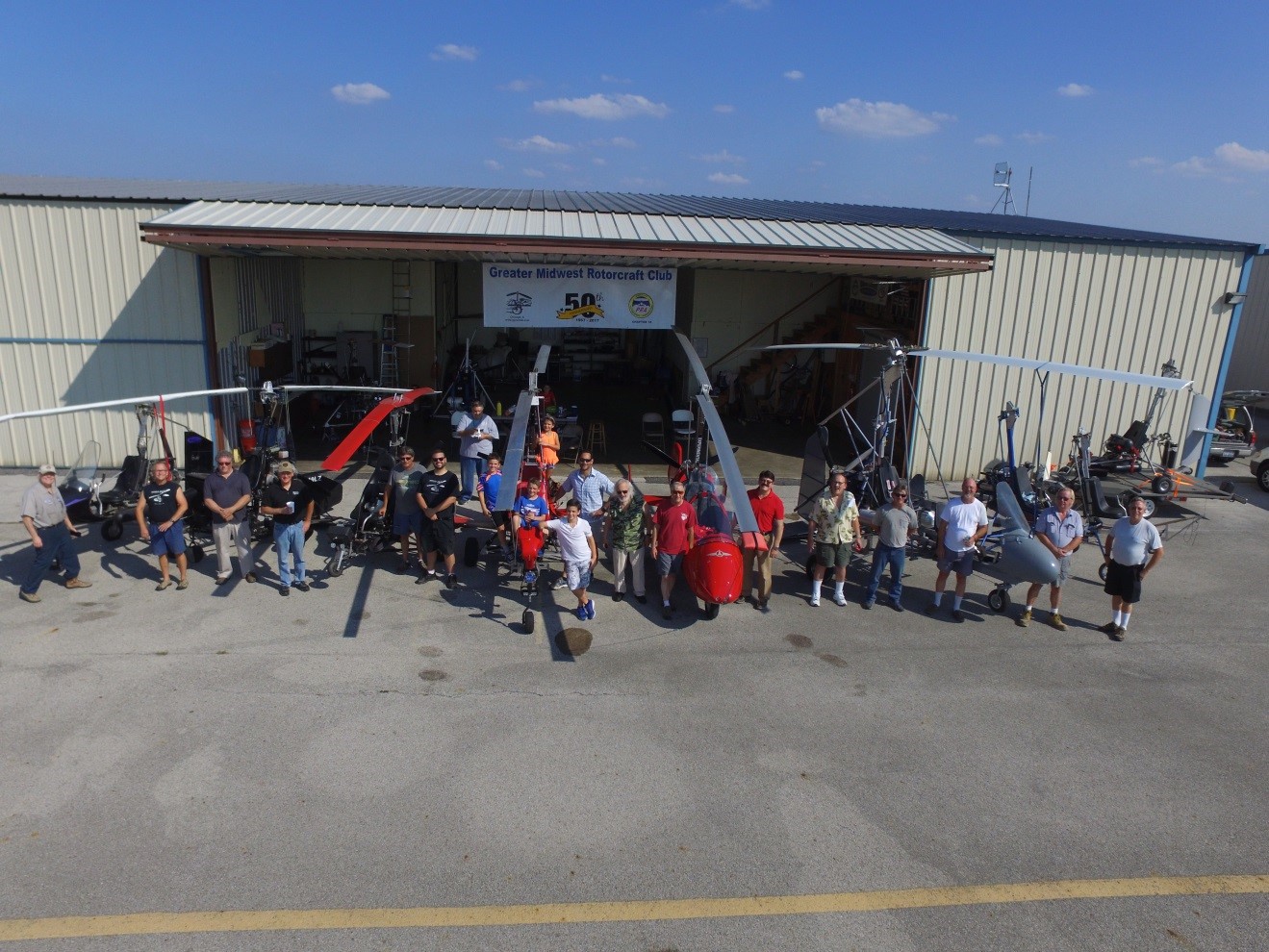
The Greater Midwest Rotorcraft Club, Popular Rotorcraft Association Chapter 18, celebrated its 50th anniversary in 2017. It was founded by seven gyroplane enthusiasts who had been meeting monthly since 1962. The founding members had been drawn to rotorcraft because of Dr. Igor Bensen’s revolutionary version of the autogiro, which he marketed as the gyrocopter. Bensen’s ads selling plans and later kits in Popular Mechanics in the mid-50’s, created a renaissance in home-built aircraft.
The Popular Rotorcraft Association, which Bensen founded in 1962, provided a forum for discussion of manufacturing methods, training, and safety issues. The founders of the Greater Midwest Rotorcraft Club wanted to create a regional resource where flying enthusiasts could find others with experience and engineering expertise to guide them as they built their own aircraft.
The club also found individuals with flying experience to help them safely into the air. Until 1972, gyro enthusiasts had to teach themselves how to fly, since there were no two-place trainers or Certified Flight Instructors for gyros. The club’s first trainer was a two-seat towed gyro glider. In the 50 years since its founding, the vision and purpose of the organization has not changed. Virtually all gyroplanes are experimental aircraft and the focus of the Club has always been on encouraging sound engineering, quality workmanship, and flight safety.
Over the years, the Club has provided a gateway where hundreds of members got their start in rotorcraft. Some members have moved on to other aviation platforms in General and Commercial Aviation. Over half of the Club’s current members are also fixed wing rated. Locally, the club participates in airport events, hosting pancake breakfasts and cookouts on its own or jointly with the local EAA chapter. They have also partnered in charity air shows and the Lansing Good Neighbor Parade and Cruise Night.
We salute the Greater Midwest Rotorcraft Club for its efforts to enhance safety and education in the experimental and gyroplane industry and for its efforts on behalf of aviation in Illinois.
2018 Hall of Fame Inductees:
Roy Beisswenger
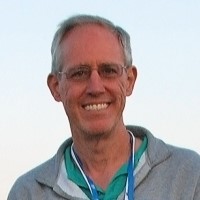 Roy Beisswenger is based in Greenville, Illinois where he has operated Easy Flight, a powered parachute training school, since 1993. Prior to the Sport Pilot rules introduced by the FAA in 2004, ultralight aircraft operated in a looser and often untrained environment. He worked locally and nationally to standardize training for these aircraft and improve safety.
Roy Beisswenger is based in Greenville, Illinois where he has operated Easy Flight, a powered parachute training school, since 1993. Prior to the Sport Pilot rules introduced by the FAA in 2004, ultralight aircraft operated in a looser and often untrained environment. He worked locally and nationally to standardize training for these aircraft and improve safety.
Beisswenger was instrumental in helping the FAA and EAA craft the Sport Pilot Rule. Before the Sport Pilot rules were introduced in 2004, he was an Ultralight Flight Instructor-Examiner with the EAA and an Advanced Flight Instructor with the United States Ultralight Association (USUA).
Before Sport Pilot, Beisswenger assembled aircraft from kits and serviced them for his school and customers. In 2006 he became a Repairman, Light Sport Aircraft Maintenance with the designations for airplane, powered parachute and weight shift control aircraft. He has also become a designated airworthiness representative for those same categories of aircraft. In late 2004, Beisswenger was chosen to participate in the FAA's first Designated Pilot Examiner (DPE) training class for the sport pilot program. In January of 2005, he was the first to receive the designations of Sport Pilot and Certified Flight Instructor-Sport Pilot (CFI-SP) for powered parachutes.
Beisswenger is also involved in industry organizations. He became a board member of the United States Powered Parachuting Association, which evolved into the North American Powered Parachute Federation. He remains there as an at-large director. Beisswenger is a board member of the United States Ultralight Association. He also served as president of the Illinois Ultralight Advisory Council (IUAC), which advises Illinois state as well as federal officials on light sport aviation issues. The IUAC also conducts the largest sport aviation safety seminar in the US on an annual basis.
Beisswenger is president of the USUA as well as the United States delegate to the committee of the Fédération Aéronautique Internationale (FAI) pertaining to microlight activity around the world. There he has helped set competition and record setting policy for the sport on a world-wide basis.
Beisswenger has written for many of the ultralight and light sport aircraft magazines. His articles have appeared in UltraFlight Magazine and the EAA Experimenter. Stories have also appeared in Ultralight Flying! as well as the Australian magazine, Pacific Flyer. He wrote part of and helped edit the FAA's Powered Parachute Flying Handbook. He now writes and edits the monthly magazine, Powered Sport Flying.
We salute you for your contributions to aviation in Illinois, and to your substantial contributions on a national level in the ultralight and light sport industry.
Chris Collins
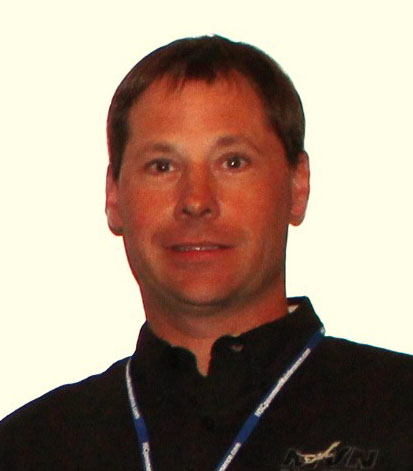 Chris Collins has been a tireless advocate for southern Illinois aviation even before he assumed his current position of Director of Mount Vernon Outland Airport in May 2005. Graduating from Southern Illinois University in Carbondale in 1992 with a degree in Mechanical Engineering and Energy Processes, Collins was deeply involved in aviation, earning his private pilot's license in 1999, and also involved in Mt. Vernon's EAA Chapter 1155. He was instrumental in starting the annual Salute to Veterans and fly-in at Mount Vernon Airport and was Young Eagles coordinator for the Chapter for several years. He has personally given over 300 Young Eagle rides.
Chris Collins has been a tireless advocate for southern Illinois aviation even before he assumed his current position of Director of Mount Vernon Outland Airport in May 2005. Graduating from Southern Illinois University in Carbondale in 1992 with a degree in Mechanical Engineering and Energy Processes, Collins was deeply involved in aviation, earning his private pilot's license in 1999, and also involved in Mt. Vernon's EAA Chapter 1155. He was instrumental in starting the annual Salute to Veterans and fly-in at Mount Vernon Airport and was Young Eagles coordinator for the Chapter for several years. He has personally given over 300 Young Eagle rides.
Since joining Mount Vernon Outland Airport as Director, Collins has been responsible for overseeing the building of two new large hangars and bringing several new tenants to the airport, including a new FBO operator which offers rental, instruction, maintenance, avionics and fuel sales. He constantly strives to bring events to the airport and to keep the airport involved with the local community. His efforts have resulted in Mount Vernon airport hosting the KR (experimental aircraft) convention six times, the Ercoupe National Convention twice, the Air Venture Cup Race every other year since 2013, and Midwest LSA EXPO since 2009. He has worked with the Chamber of Commerce and Mount Vernon Tourism Office to bring visitors groups to the Veterans Museum and Veterans Hall of Honor, located at the airport.
Collins is also active in many organizations on a personal level. He is a member of EAA Chapter 1155 and is their secretary and Young Eagles coordinator. He is a Jefferson County Hall of Honor and Museum board member. He was an organizer and board member for the Balloon Fest at Mount Vernon Outland Airport from 2014 through 2016. Collins also flew as a Civil Air Patrol pilot after getting his private pilot certificate until his schedule became overly hectic. He has made two trips to Haiti by plane to deliver supplies to missionaries there.
He is involved in many other volunteer organizations in the local community. These include YMCA board member, Lion Club board member, 4-H leader, Sunday School Teacher, Flights for Christ board member, Jefferson County Hall of Honor and Veterans Museum board member and Explorer Post #1155 adult leader.
We salute you for your efforts on behalf of the aviation community in Illinois, and for your service to the residents to the City of Mount Vernon.
Melvin Lynch
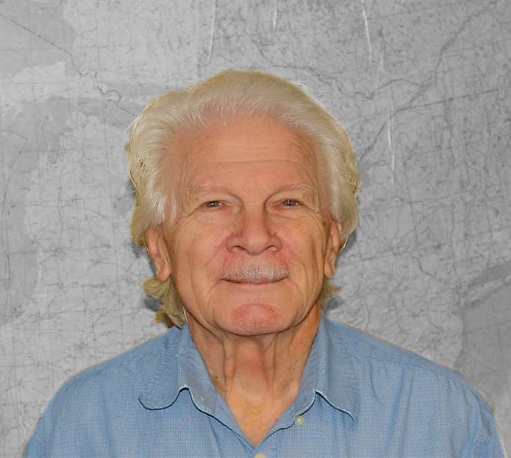
Melvin Lynch has been a flight instructor, charter pilot, A&P mechanic with inspection authorization and dedicated advocate for general aviation in northwestern Illinois for over 45 years.
In 1962, Lynch was instrumental in changing the Monmouth Flying club from an airplane owners group to a flight training organization dedicated to providing affordable flight training to area residents. Lynch was working full time as an aviation mechanic for Jet Air Inc, and provided instruction in the club aircraft at no charge. Hundreds of people were exposed to aviation and went on to earn their licenses due to Melvin Lynch's efforts. Many of those people have pursued careers in aviation as charter pilots, airline pilots, military pilots, mechanics, and airport managers.
The Monmouth Flying Club was so successful at providing flight instruction that the club's Cessna 150 went through three engines, finally becoming unairworthy in 2009. Over the years, Lynch performed the maintenance on the club Cessna 150, without compensation. He worked with several other people to secure non-profit 501c(3) status for the club and helped facilitate a grant to enable the club to obtain a replacement Cessna 172 that the club owns to this day as well as an additional trust to maintain it.
Lynch has been instrumental in keeping the Monmouth Airport open by voluntarily serving as office person, line person and salesperson for many years, for little or no compensation. He has spent thousands of free hours talking to school children and young adults about aviation and encouraging them to learn to fly. He has also served as an advisor and mentor for other flying clubs.
We salute you for the contributions that you have made to the lives and career choices of many of your students, and for advancing the presence of aviation in northwestern Illinois.
Harold Neumann (1906 – 1995)
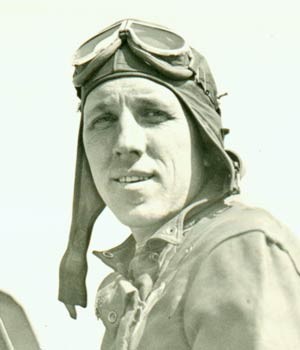
Harold Neumann, a farm boy from Geneseo, Illinois was an aviation pioneer during the Golden Age of Flying. He learned to fly in 1926 at Moline, and honed his skills in a Jenny that he kept in a hangar on his parent's farm. In 1928, Neuman traded the Jenny for a Travel Air and entered his first air race the following year at Kewanee. Also in 1929, he moved to the Chicago area where he began teaching at flight schools while participating in air shows on the side.
In the early 1930's Neumann barnstormed the nation with a daredevil flying group called the American Air Aces. A 5,000-foot dive at 350 m.p.h. was one of his specialties. His reputation as an outstanding airman grew and by 1933, he was flying competitively for Benny Howard, the Chicago-based designer/manufacturer/racer. Neumann competed in 1933 American Air Races held in conjunction with the Century of Progress in Chicago. In 1935, he flew two of Howard's planes in the 1935 National Air Races in Cleveland taking both the Thompson Trophy and the Greve Trophy. He was then awarded the Collier Trophy for outstanding aviation accomplishments and named "Air Race Pilot of the Year."
In 1936 Neumann temporarily put aside show flying and accepted a position with TWA which he held for thirty years before his mandatory retirement. He began as a DC-2 copilot and moved up to captain flying the DC-3, Constellation and Boeing 707.
Following his retirement from TWA, he became active in the International Aerobatic Club (IAC), flying his 1941 Monocoupe, Little Mulligan, which was painted like Benny Howard's Mr. Mulligan. He competed and won IAC competitions well into his 80s. He also shared his skills and techniques with younger IAC members at local, regional and nation meets, and served as a contest judge.
Neumann was inducted into the National Aviation Hall of Fame in Hammondsport, New York in 1971 and the International Aerobatic Club Hall of Fame in 1998.
Throughout his career, Neumann was known for his mentoring and collaboration with younger pilots. Not only would he freely share his aviation and mechanical skills but he would impart to them his philosophy of determination and hard work to achieve their goals.
Harold passed away July 5, 1995, at the age of 89. We salute him for his contributions to aviation, air racing and aerobatics.
Al Palicki
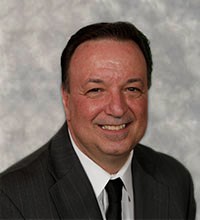
Al Palicki joined Priester Aviation as a line service technician in 1979. While working for Priester, he enrolled in Oakton Community College 's night school, receiving his Associates Degree in Business Administration several years later. He was later promoted to Line Service Manager and became an important contributor to Priester Aviation as it grew and developed Palwaukee Airport (now Chicago Executive Airport) into a premier general aviation airport.
In 2001, when the Priester FBO operation was sold to Signature Flight Support, Palicki became a Signature employee, and coordinated the transfer of Priester Aviation's Line Service Department to Signature. Today he is the Signature Flight Support Chicago Executive General Manager. All of this understates his commitment, energy and expertise. He understands and answers the needs of all airport customers, balancing the needs of business users and recreation enthusiasts. Whether dealing with a disabled aircraft, removing snow, repairing a broken hangar door or addressing a customer's special need, Palicki is always there.
Palicki actively represents aviation and the airport to the community, extolling the importance of general aviation and the airport to surrounding neighbors. He attends airport and community meetings and is the first to invite trustees and alderman to tour the airport. These tours are always complete and informative, answering questions and dispelling unfounded concerns. The community has responded to his efforts by appointing him as an Economic Development Board Member and Associate Member of the Chamber of Commerce. He is an active Board of Police and Fire Commissioner serving in his 5th term after being appointed by four different mayors to hold that position.
Over the years, first with Priester and subsequently with Signature, Palicki has supported notable aviation entities such as the Ninety-Nines, Ageless Aviation, Civil Air Patrol, Collings Foundation, the SIU Aviation Department, EAA, Young Eagles and multiple flight school/club events. He supports community affiliates such as the Chicago Area Business Aviation Association (CABAA), Girl Scouts of America, Feed My Starving Children, Toys for Tots, Dollars for Scholars, and all military branches.
We salute you for your contributions and your dedication to aviation in Illinois.
